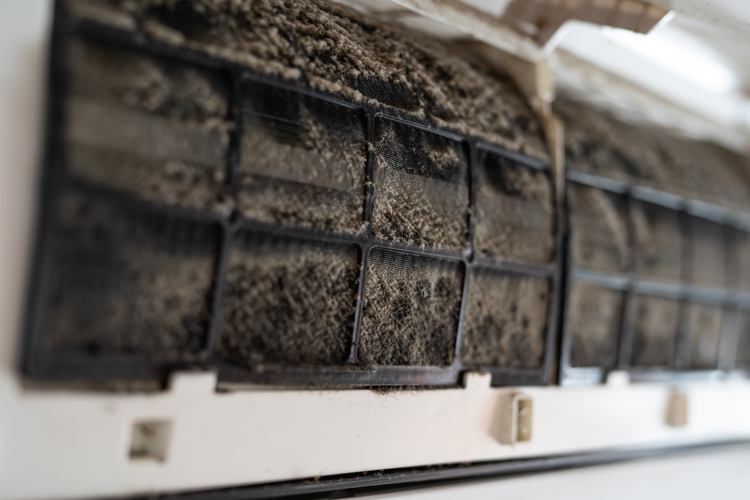
AC Meltdown? Expert Tips to Fix Your AC Without the High Costs
As temperatures soar during the hot summer months, the last thing you want is for your air conditioner to experience a meltdown. When this happens, it’s more than inconvenient – it can make your home unbearable and may leave you with exorbitant repair costs.
Before you make that phone call, find out how you can troubleshoot and fix your air conditioner on your own without the high repair bills. Let’s take a look at some common air conditioning issues, their potential causes, and some expert tips to fix your AC without the high costs from the pros at JW Heating & Air.
What Are Some Common AC Problems?
Here are some common issues that may lead to an AC meltdown:
Water Leaks
If you see water leaking from the indoor air conditioner unit, your maintenance is overdue. Water leaks can be caused by a clogged condensate drain, or it could be a malfunction in the condensate pump.
If you have a leak on the outdoor unit, it could be because of a broken condensate pan, a bad air conditioner seal, a dry air filter, or improper installation.
Solutions:
If the condensate pipe is clogged, you can try unclogging it with a wet/dry vacuum. You could also pour white vinegar into the drain line to kill algae or fungi buildup.
Diagnosing outdoor water leaks is a little more involved. If you’re not sure what might be causing the water leak, it’s best to call a professional HVAC technician.
AC Refrigerant Leak
Air conditioning refrigerant is used to cool the air within the air conditioning unit. A refrigerant leak is a common air conditioning problem, but it can take a huge toll on your air conditioner’s efficiency. Leaks can also be harmful to your health and the environment.
Solutions:
Insufficient refrigerant levels can affect the cooling process. It’s important to rely on a professional HVAC technician for issues with refrigerant, however, which requires proper handling for safety.
Dirty AC Filter
Air conditioner filters play an important role in keeping the airflow clean and free from dust and pollutants. However, a clogged air filter can restrict the airflow and decrease the efficiency of your air conditioning system.
Solutions:
Most air conditioning units have replaceable filters that can be removed or replaced easily. If you have a reusable filter, you can clean it by washing it with water and allowing it to dry before reinstalling. Ideally, your filter should be cleaned at least every two weeks – replaced two months – during the peak season. If you have pets, you may need to change your filters more often.
Damaged Compressor
One of the integral air conditioning components is the compressor, which helps refrigerants carry out heat exchange. Dirty coils, changes in refrigerant levels, and a lack of lubrication can result in a compressor failure.
Solutions:
If your air conditioner is not cooling properly or has a weak airflow, it’s probably a compressor problem. It’s important to work with a professional technician for this problem, which is a bit more complex than a DIY repair.
Frozen Evaporator Coil
If your air conditioner is not cooling properly, it could be because of a frozen evaporator coil. This is a common problem that happens if your unit doesn’t have enough air to operate normally. The dirt that accumulates on the coils can restrict the airflow, preventing warm air from reaching the refrigerant. The refrigerant then becomes cold, leading the moisture on the coils to freeze.
Solutions:
Disconnect the power to the unit and allow the evaporator coil to thaw. It typically takes about 24 hours to thaw completely. It’s best to avoid trying to thaw it yourself with a heat source, which may damage your coil. If you have moderate frost, keep the system running on fan mode, which allows the fan to melt away the frost without powering down the unit.
Malfunctioning Thermostat
One of the most common problems with home air conditioners is the thermostat malfunctioning. This can cause your air conditioner to short cycle or pump out warm air. A malfunctioning thermostat can be caused by anything from a loose screw or wire to dead batteries to corrosion.
Solutions:
If you have a battery-operated thermostat, check if the batteries are working properly. You can also remove the cover and clean any dirt in the device. If you see corrosion, make sure to contact a professional HVAC technician for a repair. This is not a DIY job.
Odd Noises from the Unit
If you notice loud or odd noises from your air conditioner, it can indicate a problem. Each sound can point to a different issue. For example, a grinding sound can be a compressor or motor failure, while a clicking sound can indicate an obstruction in the AC fan or a capacitor issue. Bubbling noises often point to a refrigerant leak.
Solutions:
Never ignore strange sounds from your air conditioner. Contact a professional as soon as possible to identify and fix the problem.
Tripping Circuit Breaker
If your circuit breaker keeps tripping, it can be caused by capacitor failure, a power surge, dirty coils or filters, low refrigerant levels, or compressor failure. It may not even be the unit itself – there could be a problem with your circuit breaker, not your air conditioner.
Solutions:
Once you notice this problem, turn off your air conditioner and don’t try to reset the breaker, as this can cause a fire. There is no DIY solution for this problem, so contact a professional plumber and electrician to get the problem resolved safely.
Weak Airflow
If you have hot or cold drafts or pressure imbalances, this is an HVAC airflow issue. The fan can’t push enough air out for different reasons, such as a faulty blower motor or a dirty air filter. Leaking ducts, blocked vents, and low refrigerant levels can also cause this problem.
Solutions:
The solution depends on the problem. For a faulty thermostat, try recalibrating it to see if that fixes the airflow. If you think there’s a vent blockage, check for obstructions around your vents like furniture or décor and move them. Cleaning the filters will also help to improve the airflow.
DIY Tips for AC Troubleshooting
- Check and replace air filters:Over time, your air filters can accumulate dust and debris, leading to reduced airflow and efficiency. Regularly inspect and replace your air filters to ensure optimal performance.
- Inspect thermostat settings:Incorrect thermostat settings can lead to cooling issues. Ensure that the thermostat is set to the desired temperature and mode (cooling or heating) and replace the batteries if necessary.
- Clean condenser coils:Dirty condenser coils can hinder heat exchange, affecting your air conditioner’s overall efficiency. Use a soft brush or vacuum cleaner to gently remove debris from the coils.
- Clear blocked vents:Blocked vents can result in uneven cooling. Ensure that furniture, curtains, and other obstructions are not blocking the vents, allowing for proper airflow.
- Inspect and tighten electrical connections:Loose electrical connections can prevent the air conditioning unit from turning on. Power the unit down and inspect connections. Be sure to tighten any loose wires, if you’re comfortable doing so.
- Thaw frozen coils:If the evaporator coils are frozen, turn off the air conditioning unit and let the coils thaw. Once they’ve thawed, you should identify and address the cause, which could be low refrigerant levels or poor airflow.
DIY Maintenance for Your Air Conditioner’s Longevity
- Regularly clean and maintain coils:Clean your evaporator and condenser coils annually to prevent dirt buildup, ensuring optimal heat exchange.
- Keep the surrounding area clean:Trim vegetation and remove debris around the outdoor unit to promote proper airflow and prevent obstructions.
- Inspect and insulate ductwork:Inspect ductwork regularly for leaks or damage. Seal any gaps with duct tape or use mastic sealant. You should also insulate ducts to prevent any energy loss.
- Schedule professional maintenance:While DIY maintenance is essential, scheduling professional maintenance at least once a year can identify potential issues early and ensure the overall health of your air conditioning system.
When to Call a Professional HVAC Technician
Even if you can DIY some air conditioning repairs, some issues may require professional expertise. Consider calling a professional HVAC technician for:
- Refrigerant leaks:Refrigerant handling requires specialized training and equipment. A professional technician can identify and repair leaks safely and effectively.
- Electrical problems:If you’re not comfortable working with electrical components, or if the issue persists after you did your DIY repairs, consult a professional to avoid safety risks.
- Complex repairs:For major component failures such as a malfunctioning compressor or a faulty thermostat, it’s best to get the help of a qualified HVAC technician. Otherwise, you risk damaging your system by attempting a repair that’s out of your scope.
- Warranty concerns:Some warranties require professional repairs from licensed technicians. If you attempt a DIY repair, you could end up voiding your warranty.
Keep Your AC Running Its Best
Maintaining a functional air conditioner is crucial for indoor comfort in the hot summer months. While AC meltdowns happen, many issues can be identified and resolved using DIY troubleshooting and maintenance.
If you need air conditioning repair, JW Heating & Air can help. Contact us today to schedule your appointment!





